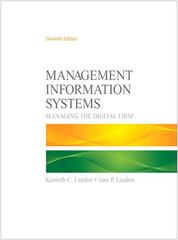Question
Pricing Before, During, and After Hurricanes The late summer of 2017 brought several devastating hurricanes that impacted large areas of Texas, Florida, Puerto Rico, and
Pricing Before, During, and After Hurricanes The late summer of 2017 brought several devastating hurricanes that impacted large areas of Texas, Florida, Puerto Rico, and the Virgin Islands. As often happens during events like these, there were several reports of stores, hotels, and service stations engaging in price gouging. Many states have laws against price gouging during natural disasters, but a Twitter photo of a Best Buy store charging $42 for a case of 24 bottles of water was widely circulated. Usually a case of water can be purchased for about $5 to $8, so the $42 price was thought to be an instance of price gouging. Best Buy quickly addressed the exorbitant price and issued an apology, stating they normally do not sell cases of water, and that an employee wanting to provide a service in advance of the hurricane simply multiplied the price of a single bottle they normally sell by 24 to arrive at the price-per-case total. Best Buys response was clearly aimed at deflecting any negative public reaction to the pricing error.
Another example of how companies might be accused of price gouging occurs with companies that use dynamic pricing, which uses computer algorithms to analyze demand and automatically raises prices as demand increases. Amazon, the large online retailer, uses dynamic pricing, and consumers saw an increase in the price of things like generators and water in the days prior to hurricanes Harvey, Irma, and Juan in 2017.
There are some economists and business thought leaders who believe that price increases during events like hurricanes is a good thing. Economists from the Chicago School of Economics state that regulating lower prices during natural disasters actually discourages consumers from purchasing essential supplies such as water and gasoline until the disaster occurs because they can anticipate regulated prices. In addition, lets say that a hotel usually rents a room for $50 a night and decides to raise the price during a hurricane to $100. A family might decide to stay in one room rather than rent two rooms, thus saving some money while at the same time increasing the supply of hotel rooms for people who need them the most.
Critical Thinking Questions 1) What risks do companies such as Best Buy and Amazon face when selling a product that they normally dont sell and then are accused of price gouging, or when they using dynamic pricing?
2) Why is the use of dynamic pricing deemed acceptable for selling tickets to sporting events but not during a natural disaster?
Step by Step Solution
There are 3 Steps involved in it
Step: 1

Get Instant Access to Expert-Tailored Solutions
See step-by-step solutions with expert insights and AI powered tools for academic success
Step: 2

Step: 3

Ace Your Homework with AI
Get the answers you need in no time with our AI-driven, step-by-step assistance
Get Started


